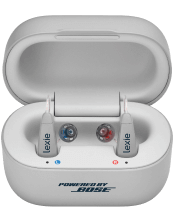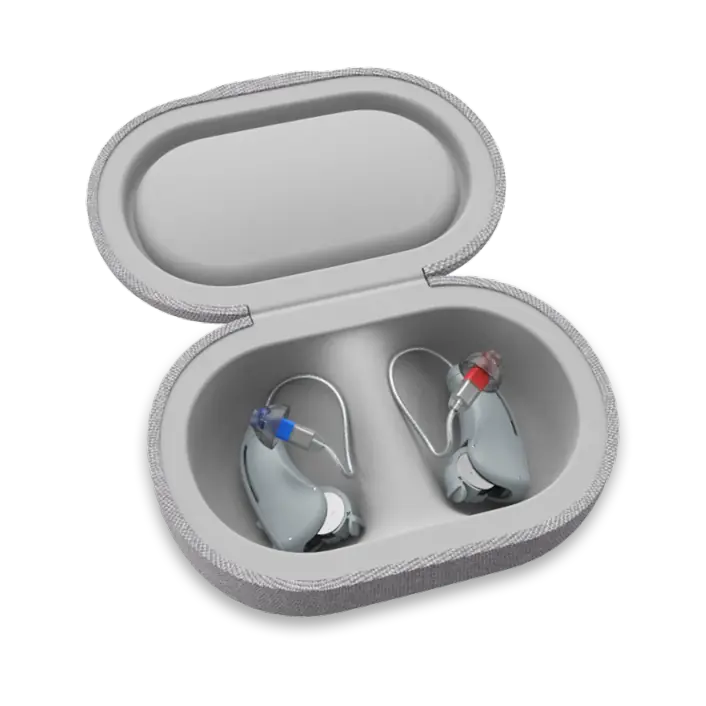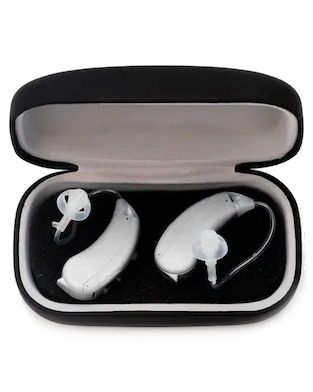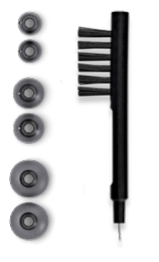5 Possible Causes of Temporary Hearing Loss
Published: March 15, 2022
Updated: April 25, 2022
There are a variety of ailments that can bring on a sudden onset of temporary hearing loss, but a sudden change in your hearing can be scary. Oftentimes, cases of temporary hearing loss are mild and will go away on their own, but if you’re dealing with a chronic, lasting, or severe issue, it’s always recommended to see a physician. Temporary hearing loss, however, can often be easily remedied—especially if treated early.
Causes of temporary hearing loss
There are many possible causes. A bout of temporary hearing loss is also known as a temporary threshold shift. Some of the common causes include the following:
Ear infections
While ear infections are more common in children, it’s very possible that the cause of hearing loss is an ear infection. When dealing with an ear infection, the area behind the eardrum is prone to a build-up of fluids that puts pressure on your ear structures correlated with hearing.
Fluid build-up and swelling that occurs can block sound, and many who have dealt with ear infections usually report that their hearing is muffled. These infections typically only affect one ear, but it’s possible for both to be infected.
While some causes of temporary hearing loss can be left to resolve on their own, it’s recommended to go to a doctor for an ear infection as infections left untreated can cause more damage, including permanent hearing loss.
Prior exposure to loud noise
One of the most common causes of temporary hearing loss is exposure to loud noises—including loud music. From concerts, to gun ranges, to sporting events, it’s important to wear ear protection to prevent damaging your ears.
While these atmospheres can sometimes only cause temporary hearing loss, regular exposure can lead to permanent hearing loss. As the ear hairs deep in our inner ears are very fine and sensitive, they can be damaged irreparably by loud noise. Depending on the type of environment, one or both ears can be affected, and the recovery time can be anywhere from overnight to two days.
If your hearing does not return within a few days, it’s recommended to see a doctor to make sure your hearing is not permanently damaged.
Ear obstruction
While earwax will fall out of your ear canal on its own for the most part, sometimes your ear wax can get stuck in your ear canal and become impacted. This is one of the most common obstructions when it comes to hearing loss, and it can hinder your ability to hear as it blocks sound waves from traveling to the inner ear.
This type of blockage is not usually painful and can affect one or both ears. Although a bit less common, foreign objects can get stuck in your ear and cause temporary hearing loss as well. When dealing with impacted earwax or obstruction from a foreign object, it’s important to see a medical professional, rather than handling it at home by yourself.
Swimmer’s ear
If you’ve recently spent a day at the lake or the pool and are now dealing with temporary hearing loss, you could be experiencing swimmer’s ear. Swimmer’s ear is a type of ear infection that affects the outer ear and is caused by water left in your ear after taking a swim. This can cause itching and pain in your ears, and should be treated by a medical professional with antibiotic drops. As swimmer’s ear resolves, your hearing should return to normal.
Ototoxic medications
There are some medications that have been deemed as harmful to the ears and hearing, especially when taking multiple ototoxic medications on a regular basis. Medications such as NSAIDs, quinine, and diuretics can cause temporary hearing loss and tinnitus. While hearing loss associated with ototoxic medications is usually temporary, it’s recommended to let your doctor know if it’s a medication you’re prescribed so as to avoid permanent hearing loss.
What to do if you’re experiencing temporary hearing loss
If you’re experiencing a sudden onset of this type of hearing loss, it’s recommended to see a doctor right away to get to the bottom of the issue. Thinking about any recent activities you’ve participated in such as swimming or attending a concert, or medications you’ve taken, can be helpful to get an accurate diagnosis and get your hearing back to normal as soon as possible.
If you’re not sure if you’re experiencing hearing loss and want to speak with a hearing expert now, Lexie has you covered. Schedule a free consultation with one of their hearing experts to put your mind at ease.






